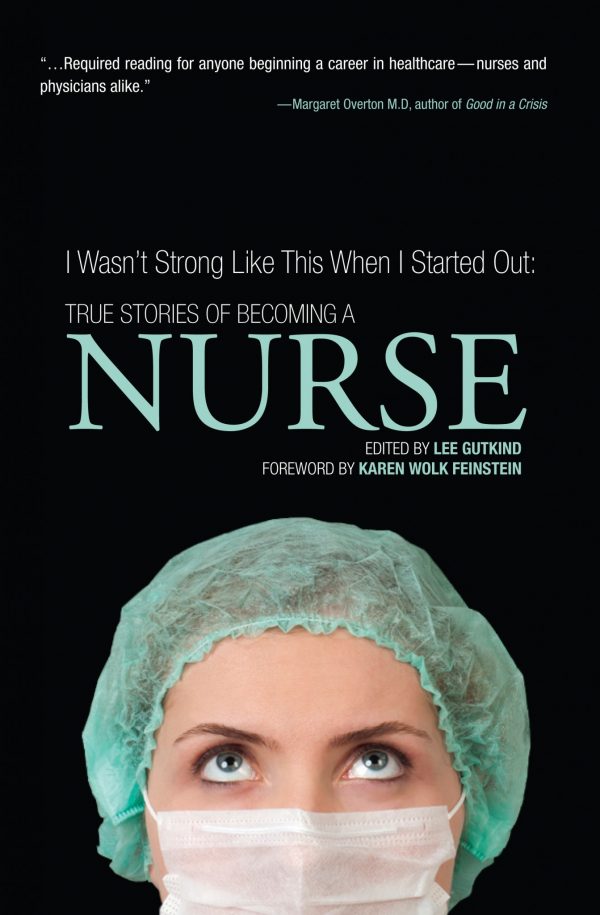May 05, 2018
A Book with a Lasting Impact
 Nurses in Honor and Action
Nurses in Honor and Action
I’ve been fortunate enough to edit dozens of books over the years—mostly, collections of new essays about subjects ranging from teachers to mental illness to the challenges of confronting end of life issues.
Making a book has a sort of rhythm to it. You get really deep into a subject—reading all the essays writers send, thinking about how to represent different aspects of a field, different voices, making hard choices about which stories to include. There’s nothing more satisfying for an editor than discovering and showcasing budding new talent—writers who can be compassionate, dramatic, forceful and informative at the same time. And then you send the book out into the world, so it can find readers. Sometimes that goes really well, and sometimes—for whatever reason—it’s more of a challenge.
And then, more or less, you move on to the next subject, the next book. The next new challenge. If you know me at all, you know I’m a person who’s always looking for new projects, for new possibilities.
But sometimes—and this is really the most wonderful thing that can happen in publishing—a book makes a particularly lasting impression. Five years ago now, I was fortunate enough to edit a collection of true stories by nurses. Reading those essays—nearly 400 submitted from around the world—was quite exciting; they were so good, so filled with passion and commitment and purpose. In the 21 stories we published in I Wasn’t Strong Like This When I Started Out, nurses revealed their work at many different stages of their careers—from a nurse in training who longs to be trusted with more “important” procedures, to another nurse who questions her ability to care for nursing home residents. There’s a story about a young emergency room nurse who finds his life and career irrevocably changed by a car accident. And a nurse practitioner who fears that she has violated professional boundaries in her care for a homeless man with AIDS.
To say the book found an audience would be an understatement. It was published in April 2013, and the next month it was featured in the New York Times’s Tuesday Science section. Jane Gross, the veteran health reporter, described the stories as “beautifully wrought.” There was also a video, a conversation between Gross and David Corcoran, the paper’s science editor. They talked about Gross’s mother, Estelle Miroff, who in 1935 graduated first in her class at Lenox Hill Hospital School of Nursing, at a time when nurses learned the basics of their profession in nursing schools run by hospitals rather than in the classroom as part of university degree programs.
Gross went on to compare her mother with the old guard nurses: “The glory years for nurses, my mother always told me, were during World War II, when most of the doctors were away and real responsibility replaced being a handmaiden.”
Today, of course, nurses have made great strides in the healthcare world. As medicine has moved from boots-on-the-ground labor to high tech care, training has in many ways synchronized research and on-the-floor personal care. And the nursing profession has grown significantly since Estelle Miroff’s days. Today there are 2.7 million nurses in this country, and demand is outstripping supply. Nurses are an essential and indispensable element of our healthcare system.
This week—May 6 – 12—is National Nurses Week, a time to think about an appreciate these professionals, who are (as I observed in my introduction to the collection) too often “semi-invisible.” It might also be a good time to pick up a copy of I Wasn’t Strong Like This When I Started Out: True Stories of Becoming a Nurse.
In the five years since its publication, the book has sold tens of thousands of copies, been excerpted in many national and international publications, such as Slate, Salon and Parade and become a text for nurse training in colleges and hospital nursing programs. To me, it seems that its success represents not only the unguarded, passionate, committed voices of nurses, but also the power, impact and longevity of true stories.